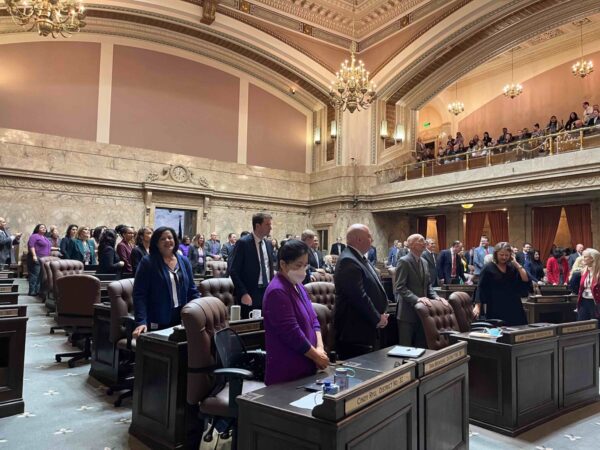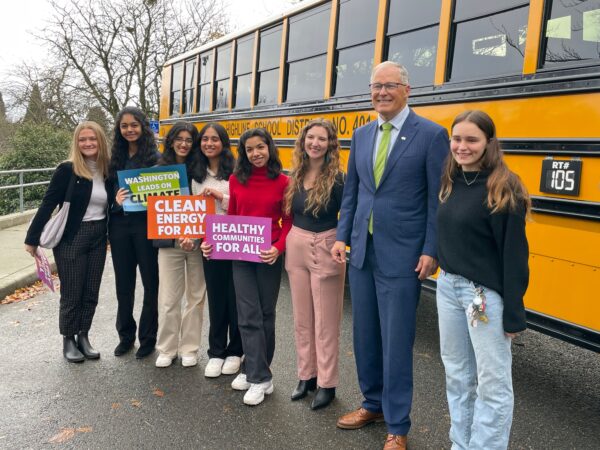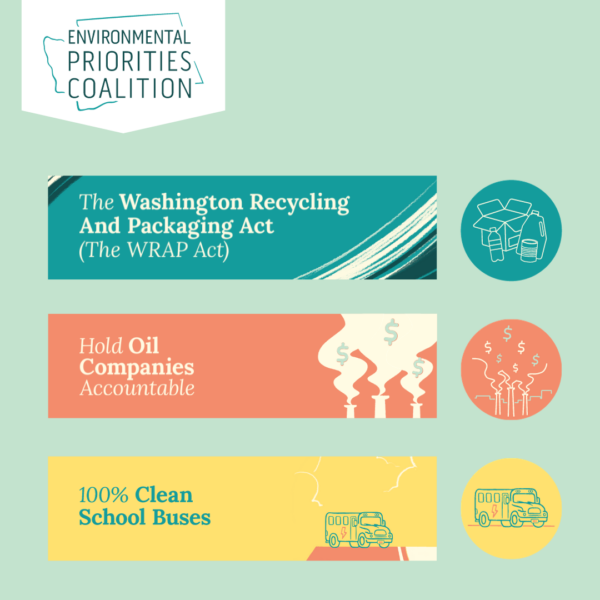Scientists say Puget Sound — in failing health for decades and beset by a litany of insults, including toxic pollution and shoreline development — could be dealt an ecological death blow by an oil spill in its poorly flushed waters. Think of it like drowning a person who already had been dying of the proverbial thousand cuts.
Citing increasing use of what they call risky practices when boats haul oil across Puget Sound, environmentalists are making a bid for a new law regulating marine vessels to match 2015’s stricter controls on the boom in oil transport by railroads. But they may have reached their high-water mark for action by the 2015-16 Legislature.
Related News

- Civic Engagement
- Climate & Clean Energy
- Environmental Priorities Coalition
- Fossil Fuels
- Legislative
- Lobby & Advocacy
- Organizational
- Racial & Environmental Justice
EPC Celebrates 100% Clean Buses, Budget Priorities Made Possible by CCA
Environmental Priorities Coalition (EPC) celebrates its legislative and budget victories, including passage of 100% Clean School Buses (HB 1368), and an estimated $1.2 billion in Climate Commitment Act funding for critical needs in communities.

- Climate & Clean Energy
- Environmental Priorities Coalition
- Fossil Fuels
- Legislative
- Lobby & Advocacy
- Organizational
- Racial & Environmental Justice
EPC Celebrates WA kids getting 100% Clean School Buses
The Environmental Priorities Coalition (EPC) celebrates Senators voting 29-20 to pass HB 1368 off the Senate floor. Once the House concurs, the bill will be sent to the Governor's desk to become law.

- Environmental Priorities Coalition
- General
- Legislative
- Lobby & Advocacy
- Organizational
Environmental Priorities Coalition 2024 priorities, Partnership Agenda
EPC will focus on modernizing recycling, electrifying school buses, and price gouging by greedy big oil companies in 2024 legislative session
